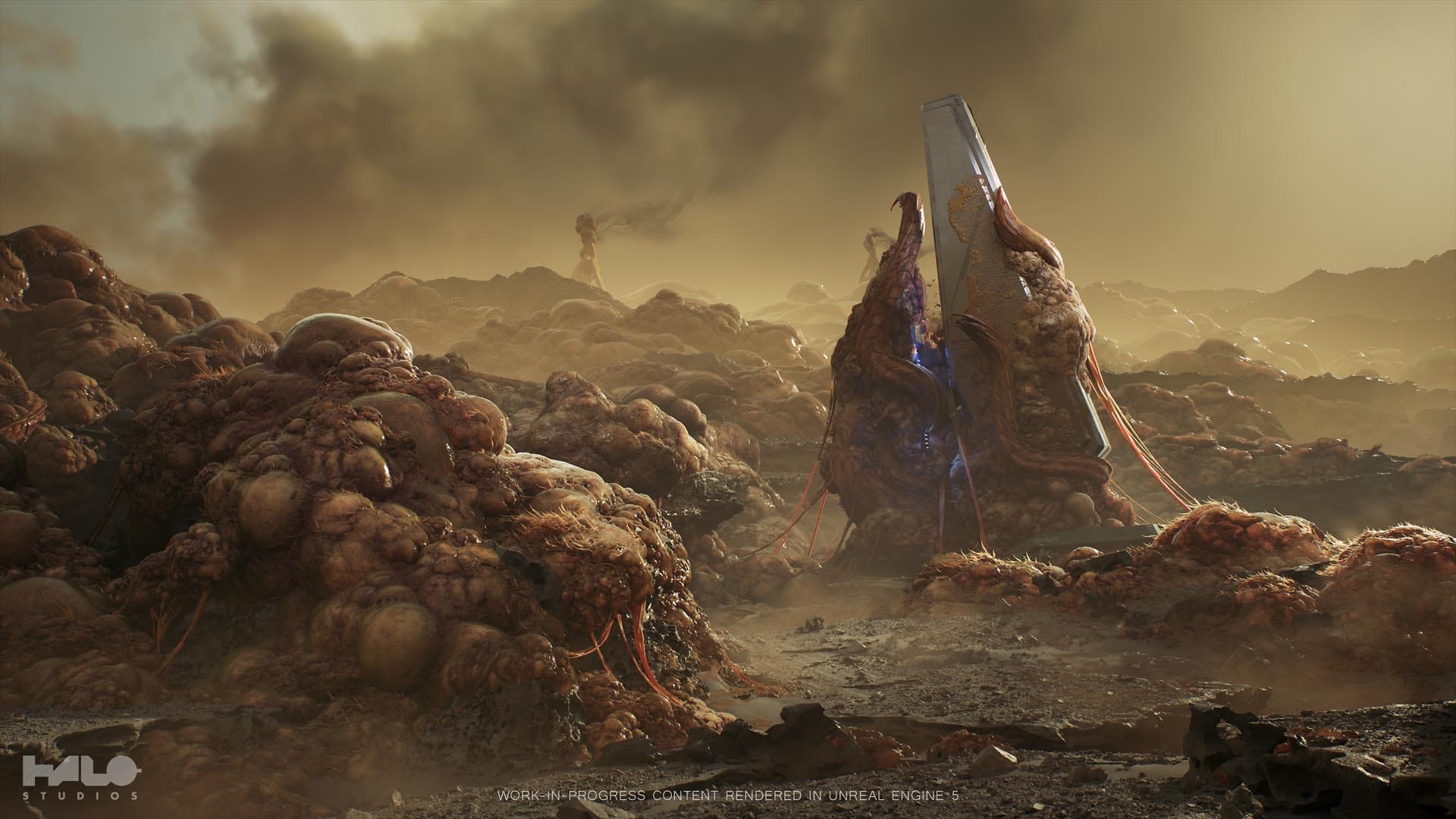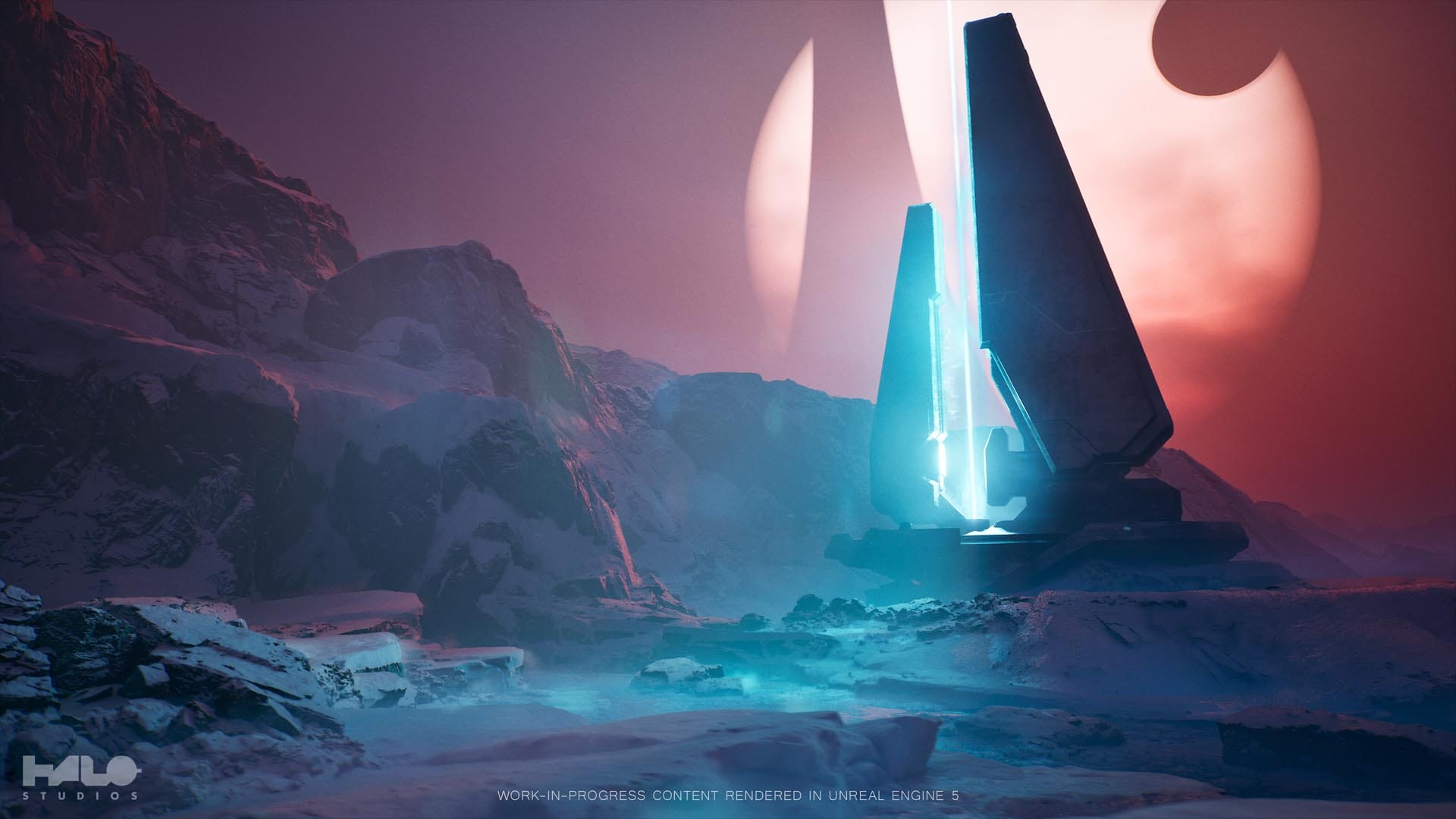A New Era for Halo: What Unreal Engine 5 Means for the Future of the Franchise

The Halo franchise is stepping into a new era, and it’s more than just a visual upgrade. With the surprising news from the 2024 Halo World Championship, we now know that the iconic sci-fi universe is moving to Unreal Engine 5, with multiple new games already in development. But what does this seismic shift mean for the future of Halo? And more importantly, what can we expect as players?
If you’re a long-time fan of Master Chief or someone just intrigued by the changes, you’re in for a ride. Halo Studios (formerly 343 Industries) has not only adopted an industry-standard engine but is also reshaping how they make games. Let’s dive into the changes, explore their impact, and raise some questions that could shape the future of one of the most beloved gaming franchises.
Why Unreal Engine 5?
For years, Halo has been powered by the proprietary Slipspace Engine, which was a marvel in its time but has become outdated. Now, as Halo Studios moves to Unreal Engine 5, it signals not just a change in technology but a shift in how they approach game development altogether.
But why Unreal? Pierre Hintze, the Studio Head at Halo Studios, points out that modern gamers expect faster content releases, polished experiences, and more immersive worlds. Unreal Engine 5 offers all this and more. With tools like Nanite for next-gen rendering and Lumen for dynamic lighting, the franchise can now deliver larger, more detailed environments without compromising on performance.
Here’s a question for you: Will these technological leaps help Halo maintain its competitive edge in the ever-evolving world of first-person shooters? What does it mean for the gameplay we’ve come to love?

Halo: More Than Just a Visual Overhaul
The move to Unreal isn’t just about making things look pretty. Halo has always been about that perfect balance of gunplay, exploration, and storytelling. The team behind the series is keenly aware of that, so they’ve been experimenting with how Unreal can keep the soul of Halo intact.
Project Foundry, an internal experiment, tested Halo’s transition to Unreal by recreating familiar biomes—everything from Pacific Northwest-inspired landscapes to icy tundras and even the terrifying Flood-infested Blightlands. The stunning results are expected to form the foundation for upcoming Halo titles.
What’s fascinating is how Halo Studios has approached this project. Instead of creating a flashy tech demo filled with smoke and mirrors, Foundry was developed with the same standards as a full-fledged Halo game. Everything we saw in that reveal could show up in future titles. This isn't just hype; it’s a roadmap.
Can you imagine exploring a new Halo world with Unreal’s cutting-edge tech? What kind of environments would you like to see Halo dive into next?

New Engine, New Games
The shift to Unreal doesn’t just streamline development—it enables Halo Studios to work on multiple projects at once. This is something fans have been eagerly awaiting. After the release of Halo Infinite, many were left wanting more, faster.
By adopting Unreal, the development team can focus more on crafting the games and less on the technical hurdles that come with maintaining an in-house engine like Slipspace. As COO Elizabeth van Wyck explained, “We want to focus on making games, not just making tools.” This means fewer delays and quicker releases—exactly what fans have been clamouring for.
This new approach also opens the door to new talent. Unreal is widely known throughout the industry, which means Halo Studios can bring in developers more easily, ramp them up faster, and get them working on new Halo projects without the long learning curve that came with Slipspace.
But here’s something to think about: With multiple new Halo games in development, what do you think these titles will explore? Will we see more of the Master Chief, or could the series branch out into something entirely different?

A Change in Culture
It’s not just the engine that’s changing—Halo Studios is undergoing a complete cultural shift. The team is reorganizing how they work, focusing more on player feedback and making decisions based on what fans want. The studio has even hinted at bringing in wider feedback earlier in development, which means players could have a say in shaping future Halo games.
This is a far cry from the old days, where players often had to wait until release to see if their favourite franchise had lived up to expectations. The team’s commitment to “doing more and saying less,” as Hintze puts it, is a refreshing change. It suggests that Halo Studios is focused on delivering tangible results rather than hyping up unfinished projects.
What would you want to see in the next Halo game? Could this shift towards player feedback lead to a more community-driven Halo experience?

The Road Ahead
It’s important to remember that while all of this sounds exciting, we’re still in the early days of this new chapter for Halo. The next big game might not be around the corner, but Halo Infinite will continue to get support with more operations and Forge updates. And for those invested in Halo esports, the Halo Championship Series is still going strong into Year 4.
But in the background, Halo Studios is quietly working on multiple new projects, each built on the foundation of Unreal Engine 5. As fans, we’re left to imagine what’s next. Will we see more of Master Chief? Will some spin-offs dive into new characters or explore different aspects of Halo’s vast universe?
What do you think the future holds for Halo? Will the franchise’s shift to Unreal bring in new players, or will it stay true to its hardcore fan base?

Conclusion: A New Dawn for Halo
The announcement that Halo is moving to Unreal Engine 5 represents more than just a technological upgrade—it marks the beginning of a new era for the franchise. Halo Studios, under its new banner, is rethinking how it makes games, reorganizing its teams, and focusing on delivering the experiences that fans crave.
As the studio takes its first steps into this new chapter, we can only imagine what’s on the horizon. Whether you’re a die-hard fan of Master Chief or someone curious about the series, there’s no doubt that exciting times are ahead for the Halo universe.
So, what do you think? Are you ready for a new era of Halo, or do you prefer the old days of Bungie and 343 Industries? What excites you the most about this transformation?
